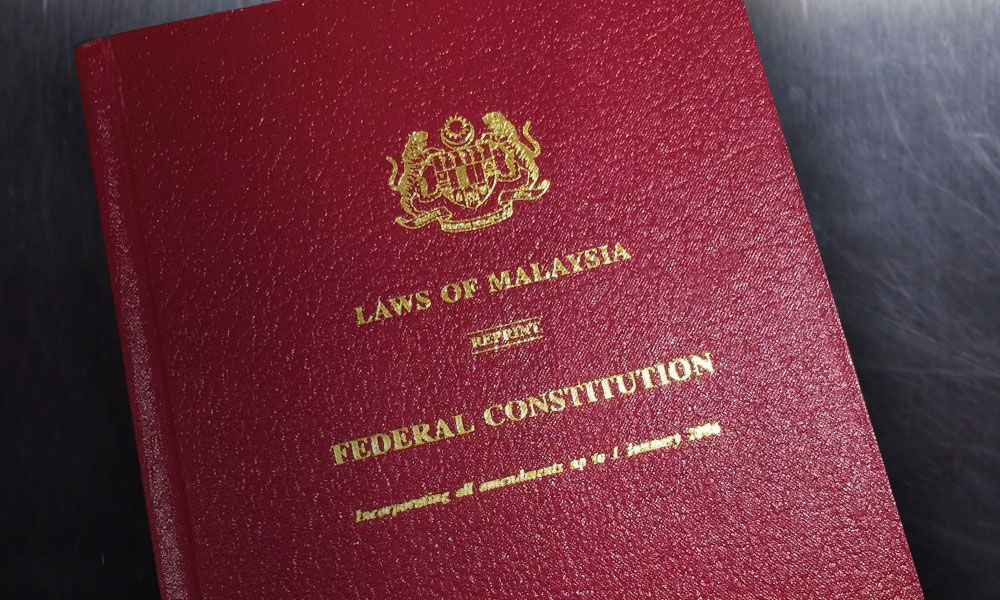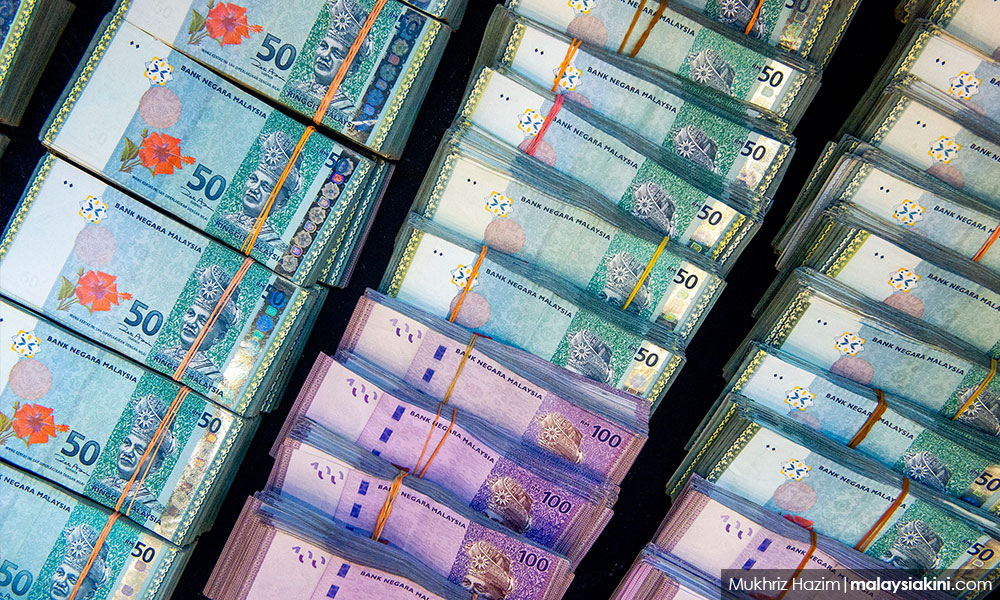Please let me start off with a caution. This article is not another race-religion baiting and bashing discourse. In fact, many inclined towards such mainstream toxicity are bound to be disappointed.
My hypothesis is that klepto-economists have milked race and religion as their weapon of mass mind poisoning to feed their plundering ways, and it is not just the speciality of one particular race or religion.
Once the envy of the world, Malaysia’s multi-faceted racial, religious and cultural forte is now a hotspot of racial and religious intolerance and thriving mega-corruption, competing for the worst pole position among the world community.
Some recent world rankings are there for all to see. The global community is exasperated as to how such a harmonious and religious state, a rising exemplary star among developing countries, has descended to such infamy, so soon and so fast.
When in such a hopeless situation, it is always good to step back and ponder the basics. Using the trending term, let me call it klepto-reset.
Every religion preaches good tidings, and none should be seen as superior to the other. Only humans, for their own selfish desires, misuse religion and their followers.
In the Malaysian context, I would like to quote the Constitution, our supreme law, the wise words of the monarchy who is the guardian of Islam, and the clarification of Syariah-hudud law by renowned Islamic scholar/politician Abdul Hadi Awang, all in the context of klepto-economics.
Article 3, Clause 1 of the Federal Constitution states that Islam is the religion of the Federation; but other religions may be practised in peace and harmony in any part of the Federation. There is nothing in here that states any one religion is “superior” to the other, likewise, their non-adherents can be called “kafirs” or by other derogatory terms.

Furthermore, Perak ruler Sultan Nazrin Shah recently reminded that Muslims should not give their trust or hand over responsibilities to those with evil and hypocritical image, low morality, tainted by corruption and abuse of power, as well as those who are untrustworthy and insincere - all traits of klepto-economists.
He added that Muslims must protect the sanctity of Islam from any form of defamation or degradation in the course of fighting for political power. He further gave an assurance that the constitutional provision, which states that the Yang di-Pertuan Agong and the Malay rulers as heads of the religion of Islam, guarantees that Islam will always be protected.
So why is there so much insecurity, fragile self-confidence, and fear of the shadows, that race and religion can be insulted or degraded at the sight, sound, or taste of anything or anyone, especially the practices of kafirs?
This started happening only very recently with an ever-increasing crescendo, while the same Malaysian community has co-existed peacefully with a unified zest for nation-building for the past several decades. That’s a billion-ringgit question; a manifestation of klepto-economic behaviour.
I do not intend to imply that klepto-economists only exist among Malays. Of course, it is amplified by being the majority population. One cannot abuse power if not invested with authority.
On the contrary, they exist in every race and religion, often colluding in a cosy environment where, surprisingly, race-religion relations are at its best. This is where the clarification of Syariah law, in particular hudud, by Hadi offers some insight.
Willing giver, willing taker
On April 28, 2015, Hadi delivered a distinguished public lecture at the S Rajaratnam School of International Studies (RSIS), Nanyang Technological University in Singapore.
He lectured for an hour about Islamic criminal laws, in particular hudud, followed by a Q&A session for half an hour. The two video recordings are available on YouTube. I can vouch for the veracity of the videos as I was one of the attendees as a senior academic in RSIS then.
Prompted by a question from a participant, Hadi clarified as follows: “Corruption is not part of hudud, it is not defined as stealing or robbery as corruption is a voluntary act between giver and taker, it is up to the government to mete out appropriate punishment.
“However, stealing/robbery is a serious offence and the punishment is amputation, it involves taking the property of the hard work of others without their knowledge, brings hardship to the whole community; like a diseased part of the body, it has to be amputated before it spreads; hudud applies equally to all from kings to the common person.”
These are excerpts, and readers are advised to listen to the full explanation.
My take on this is that I may agree that corruption, in particular bribery, to a certain extent is undertaken on a willing-giver-willing-taker basis. At one end, it can be seen as a gift, an appreciation for gracious deeds, duit kopi (money to buy coffee), or rezeki (good fortune) done voluntarily. I would call this benevolent corruption. But when bribes are demanded through abuse of power or authority, it becomes stealing/robbery.
Unfortunately, it takes a brave soul as an unwilling giver to challenge authority, and therefore such corruption thrives, involving only personal property. On the other end of the spectrum are klepto-economists, who have perfected the art of willing-giver-willing-taker and collude to plunder public wealth held in trust by them.
Furthermore, klepto-economists abuse their authority and power to ensure it remains within the perception of benevolent corruption. Anyone who dares blow the whistle is summarily persecuted as culprits.
Klepto-economists see their actions as just rewards/compensation for their hard work in demolishing checks and balances in the system to ensure the transaction goes smoothly. Such acts are plain stealing/robbery on a massive scale, which brings calamity not only to a community but to the whole nation. Hadi said this certainly calls for hudud punishment, the most effective deterrent laid out by the Almighty, no matter who that person is.
Some of the recent allegations made in court on mega-projects in government and private sector attest to the collusive transactions among klepto-economists from different races.

The classic example is, of course, 1MDB where a Chinese Malaysian playboy not only fooled around with top celebrities, but also allegedly fooled heads of state, government, pension and sovereign funds, multilateral banks and institutional investors. So in a sense, this klepto-economic phenomena is worldwide, among all races and religions.
Such willing-giver-willing-taker corruption on the quiet would have remained hidden, if not for the unwilling voters who decided to protest in GE14. Unfortunately, such euphoria was short-lived. Former premier Dr Mahathir Mohamad now moans current head of government Muhyiddin Yassin has taken a page from former prime minister Najib Abdul Razak!
Klepto-economics: A recap
I started off this discourse on klepto-economics entitled 'The costs we pay for our klepto-economics', where I explained how klepto-economics defies all contemporary economic, business, accounting thoughts and rules.
The eventual cost is the destruction of a nation. I realise calling upon politicians of both divides to change their klepto-economic behaviour is a lost cause and asked for the public and voters to wise up, as they did in GE14.
In the second piece entitled 'Klepto-economics: Class-action ultimate recourse?', I further suggested the public ponder on their constitutional right for a class-action suit.
Some readers thought the idea is far-fetched, indicating the public is timid. We need to draw our lessons from a few brave souls who, before GE14, individually stood up against abuses in the system; officials in the police force, MACC, National Audit Department; and among the masses, a mother yearning for her child, families mysteriously losing one or both breadwinners, and all the kind souls who assisted them.
In this article, I explored how race-religion is played up to the hilt to keep the people divided in order to do their bidding. I live in a small rural town now, and all these politics-race-religion polemics sounds so foreign among the people here. Would anyone dare look upon the Covid-19 medical frontliners through the clouded race-religion lens, other than the klepto-economists?
Klepto-economists are a very sly breed. They know what keeps us off-guard and unwittingly become their tool. They distract us with a project or case every now and then, like the Jasa (Special Affairs Unit) budget red herring, or stir up racial discord like what is happening in Kedah now.
We, unfortunately, get caught up and run with it. They make us preoccupied with the symptoms only, but not the disease itself. As Hadi said, we need to bear some pain and discomfort to excise the diseased part away.
Covid-19 may fade away in a matter of time. The blessing is that the downtime is giving us the opportunity to reflect and see through the wayward ways of politicians. We have to “kita jaga kita” (take care of each other) to put the nation on the right track.
Parliament has approved a record RM323 billion Covid-19 budget, but we still hear everyday people thrown out on the streets, or desperate mothers “stealing” to feed their children. What makes the news are kind-hearted public and social workers helping them out instantly, even before the government reacts.
If the politicians do not offer what is good for the country, we should be bold enough to only vote the people we can trust, irrespective of party, race or religion. That’s the only way to beat klepto-economists.
We just need to reset our thinking and wise up to save our beloved nation.
RAMAN LETCHUMANAN was director, Environment/Conservation, Ministry of Science, Technology and the Environment (1993-2000), head of Environment/Haze/Disaster Management, Asean Secretariat, Jakarta (2000-2014), and senior fellow at S Rajaratnam School of International Studies (RSIS), Nanyang Technological University, Singapore (2014-2016). He is a subscriber of Malaysiakini. Email: raman.asean@gmail.com. - Mkini




No comments:
Post a Comment
Note: Only a member of this blog may post a comment.